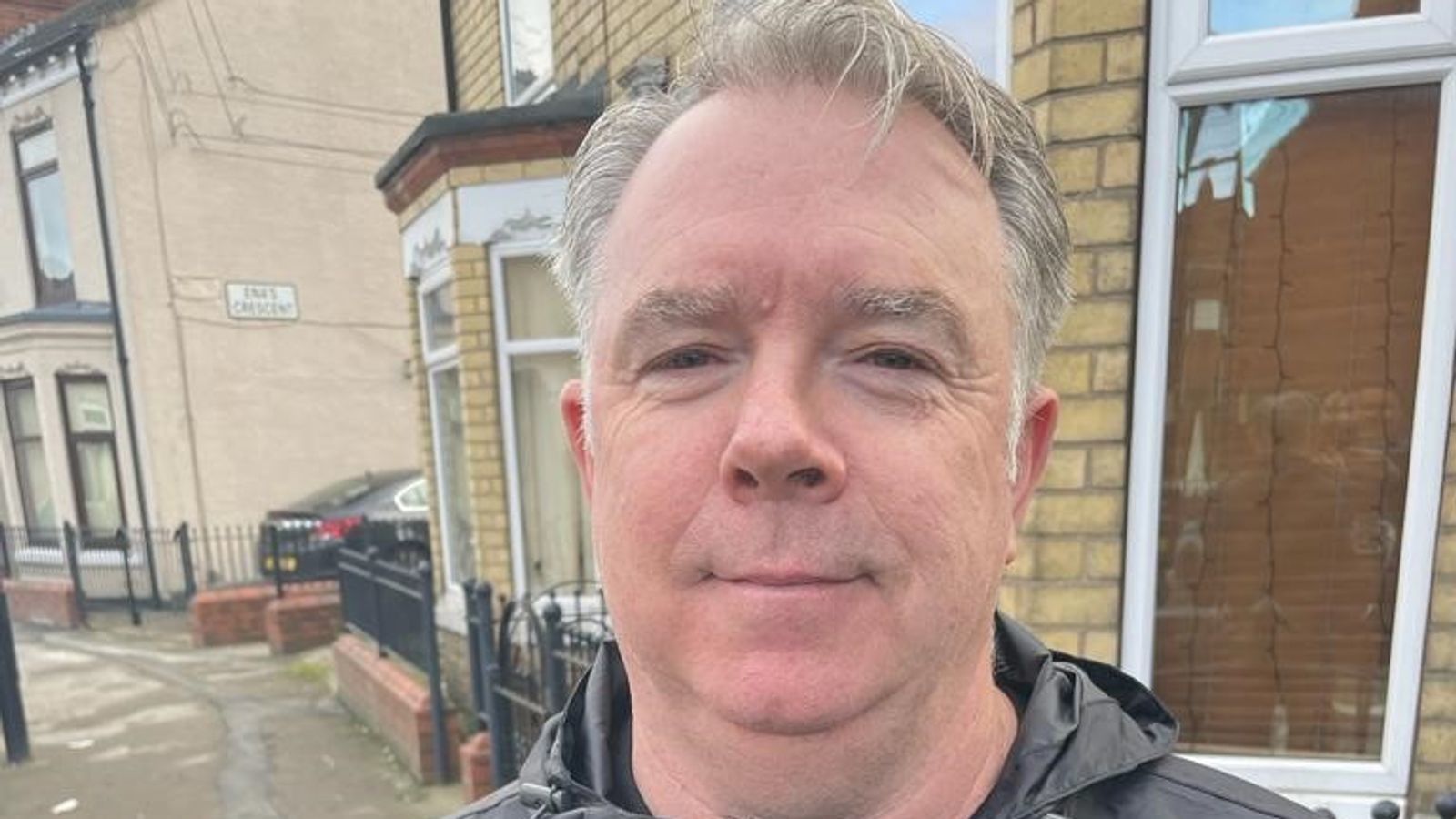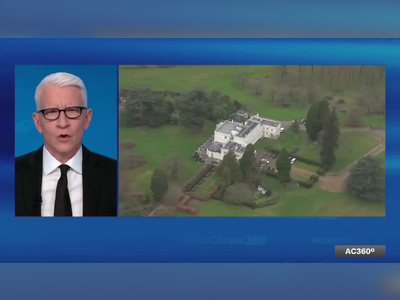
Councils paying millions more for temporary accommodation in social housing shortage
An extra £118m, at least, will be spent this year on temporary accommodation, such as hotels and B&Bs, by councils, a Sky News investigation has found.
If trends continue, local authorities in England will spend nearly a quarter more (24%) this financial year than pre-COVID-19.
Outside London, expenditure is on track to increase by 55%.
The number of families living in temporary accommodation (TA), as a proportion of the population, has also risen by 8%.
Around £309m was spent by councils on TA in the six months to September, and they are expected to spend well over £618m this financial year.
That's compared with £500m in the year to March 2020.
The true figure will be much higher because out of more than 300 local authorities contacted, through freedom of information requests, only 180 responded with comparable data.
The biggest increases in TA spending since before the pandemic have been in Yorkshire and the Humber and the South West.
The biggest rises have been in St Helens, Rossendale, Torridge, Sunderland and Wigan.
Torridge district council, in Devon, one of the worst affected, has a forecast for TA expenditure of £1.1m this year, an increase of more than 2,000%.
Devon is a case study in itself, bearing the brunt of external housing market pressures.
There are 70% fewer properties available to rent there than in 2018 and the cost of rented accommodation has also risen by 42%.
It is also believed that in Torridge, a "tourist hotspot", a "significant number" of properties are being let as holiday homes.
Torridge district councillor Rachel Clarke, lead for homelessness and housing need, told of "unprecedented pressures" with "modest reimbursement" from the government.
"The council is facing significant challenges in finding affordable rented accommodation for residents in temporary accommodation, and hence their stays in TA are longer," Ms Clarke said.
"The cost pressures associated with temporary accommodation is by far the biggest cost pressure this council faces."
 Sally O'Malley and her son Ollie were evicted from their privately rented home
Sally O'Malley and her son Ollie were evicted from their privately rented home
More children in temporary accommodation
The latest government figures also show that the number of families with children living in TA in England, outside London, has risen by more than 20%.
Sally O'Malley and her son Ollie, 12, are one of those statistics.
They lived in a hotel, followed by a B&B, after she was made homeless through a "no fault" section 21 eviction.
She was told, like many are, that she would not be eligible for help from the authorities until the day she became homeless.
Ms O'Malley, 49, who is from Leeds, was evicted from her privately rented house and describes the ordeal as "traumatising" and "hell":
"I wouldn't wish it on my worst enemy… horrible. We got to the stage where I really wanted to give in," she said.
"Then I'd beat myself up cos how could I think that with Ollie? I had no fight left. I didn't want to do one more phone call, one more email. I totally lost myself, I was drowning."
She is now in rented accommodation paid for through her housing allowance but, as it doesn't cover the cost of rent, is topped up by the local council.
She is one of thousands going through a cycle of eviction, homelessness, temporary accommodation and then back into an expensive private rental sector.
The councils that responded to information requests have spent £1.98bn on temporary accommodation in the past three and a half years.
 Sean Gillespie, a landlord in Hull, says a 'massive housing crisis' is on the way
Sean Gillespie, a landlord in Hull, says a 'massive housing crisis' is on the way
Rising rental costs and falling supply
The reasons behind the rise in costs is partly down to more homelessness in some areas, but also due to the rising cost of accommodation itself.
The supply of privately rented accommodation is dropping, which is partly pushing up prices.
Some councils are also struggling to find places to put people up in, which means they are having to resort to more expensive shorter-term lets.
Sean Gillespie has a portfolio of properties to rent in Hull and blames government legislation for a lack of stock as it forces landlords to sell up.
He claims the most damaging piece of legislation has been "section 24", which came fully into force last year and means landlords are no longer able to offset financial costs against tax.
"Can you imagine a business, any business, where you can't offset your costs? How is that possible? It's now possible to make a loss as a landlord and still pay tax - it's bonkers," he said.
"We are not taxed on our profits, we're taxed at our turnover. Where is the spare money?… We [landlords] don't want a new Rolex, we just don't want to sell someone's house.
"Because that doesn't help anyone. I really don't know where people are going to live. There's going to be a housing crisis. It's in the post, a massive crisis, it's catastrophic."
Alex Diner, senior researcher of housing policy at the New Economics Foundation, describes temporary accommodation as a "national scandal".
"We are throwing far more money at the symptom of the problem and far less on addressing the root cause of it," he said.
"It's economically illiterate and dysfunctional that we're allowing ever-increasing amounts of money to pay for that, rather than dealing with the problem at source and building social and affordable housing that the country so desperately needs."
Lack of social housing the key problem
At the heart of all this is one uniting factor: a distinct lack of social housing.
Think of the housing market as a vicious circle of inequality, with two things happening at the bottom.
One: unaffordable housing has driven more and more people on low incomes into the private rented sector.
Two: social housing stock has been sold off and not replaced and therefore benefit recipients have also been forced increasingly to privately rent.
The fact is the private rental sector has become a substitute for social housing.
In the middle of it, two converging groups of people have begun to compete for the same place to live.
Government figures show 25.7% of households in the private rental sector are in receipt of housing benefit.
If we built more affordable homes, and specifically more social housing, it would slowly take the heat out of the private rented sector and ultimately market sales.
Private rental has become a precarious and increasingly unaffordable sector and is one of the main reasons why taxpayers are spending billions on temporary accommodation.
From an economic perspective it may appear nonsensical, certainly in terms of "levelling up".
Ultimately, an overreliance on the private rented sector, as more landlords sell up, will only serve to deepen social and housing inequality.
A government spokesperson said: "Temporary accommodation is a last resort, but a vital lifeline for those at risk of sleeping rough.
"We are giving councils £316 million this year to prevent homelessness and help ensure families are not left without a roof over their heads.
"We know people are concerned about rising costs, which is why we have announced the energy price guarantee, to support household with their energy bills over the winter, and a further £37 billion of support for those struggling with the cost of living."











